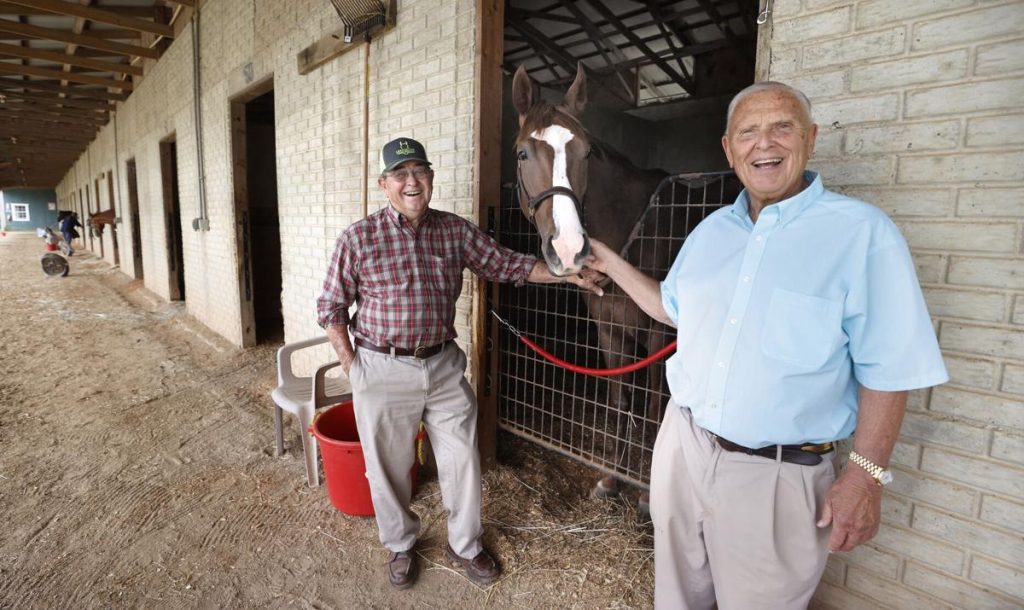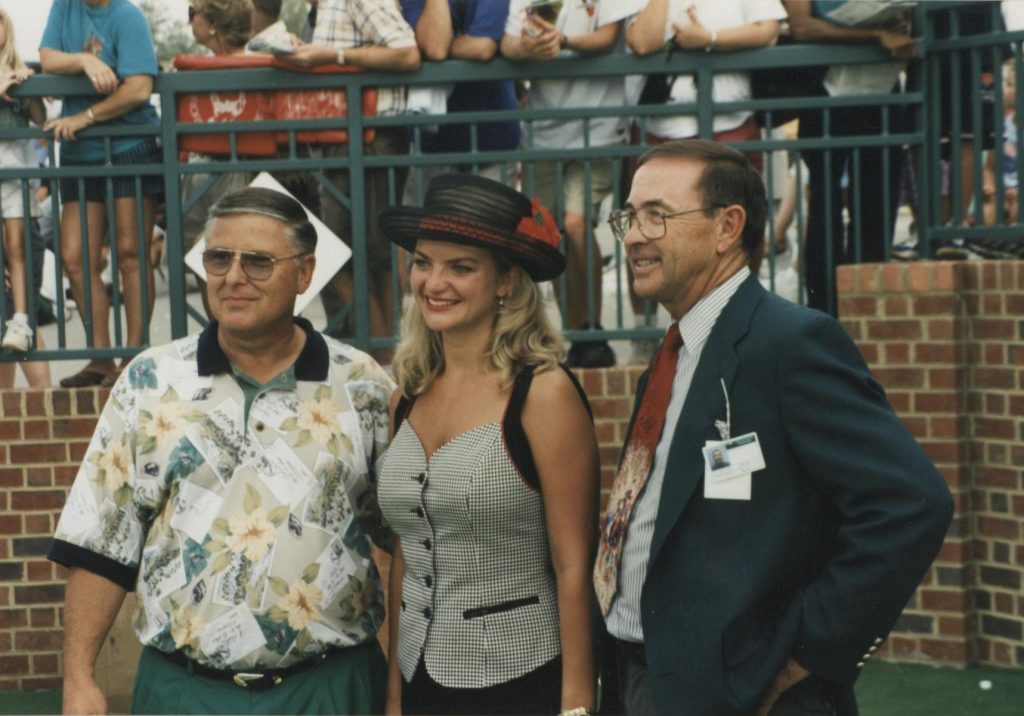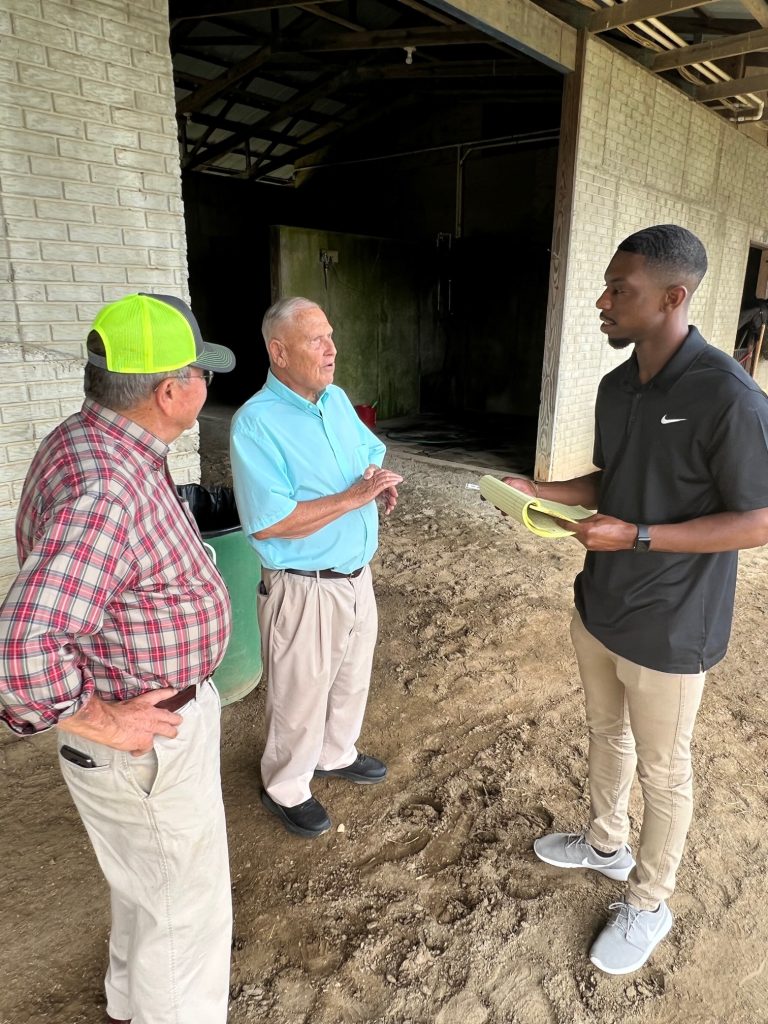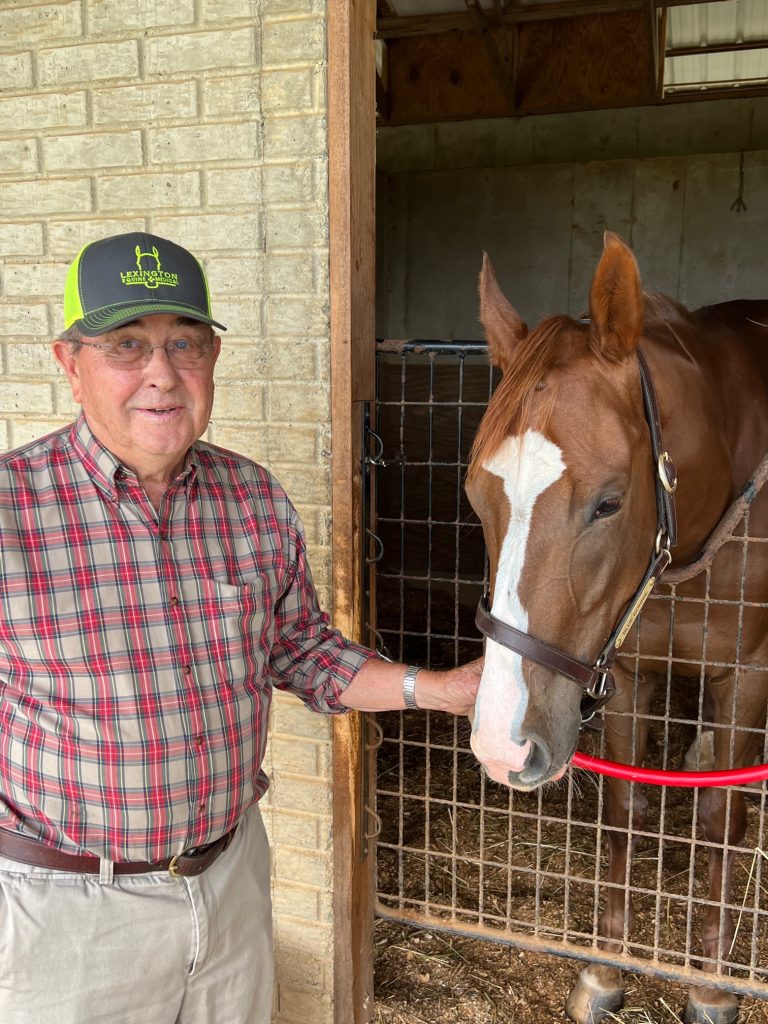The following appeared at richmond.com on July 10 and was written by Wayne Epps.
Twenty-five years ago, Williams found himself in the winner’s circle on what was a historic day for horse racing in the Commonwealth.
That day, Sept. 1, 1997, was opening day at Colonial Downs, the first-ever day of pari-mutuel racing at the New Kent track. And in the fourth race on the program, a mile-long dash, Williams’ Hagley’s Hero won — garnish on what was already a momentous occasion for he and other local horse owners.

“That opening day was just spectacular, to be able to be here and race here in the state of Virginia, and be so close to home,” said Williams, who owns Garydale Farm, a horse training facility in Henrico.
And 25 years later, he and friend George Gregory are back at Colonial Downs once again. Their friendship dates back well before Colonial Downs opened — since the late 1950s estimates Gregory, a New Kent-based horse owner. Gregory joined Williams in the winner’s circle when Hagley’s Hero triumphed in 1997, and both have been regulars at Colonial Downs since.
They’re both in their 80s now. But as they prepared for this summer’s set of races near their barn stalls on Thursday morning, the vigor they have for horse racing was written on their faces.
The bug bit both long ago. And they remain peers in a sport that doubles as a passion, heading into a meet with the track’s most race dates ever: 27, beginning on Monday.
“It’s just one of those things. It gets in your blood,” Williams said of racing. “And it’s in our blood.”

For Williams, it got there through a friend. The friend was a jockey, and Williams joked that he “made the mistake” of joining him at races. Williams became hooked.
The owner of the Richmond-based Total Printing Company, Williams bought what became Garydale Farm some six decades ago.
“Total Printing is work,” Williams said. “The horse racing business is entertainment and fun.”
Gregory’s father introduced him to the sport, and he obtained his first horse in 1957. It was something he, like Williams, loved.
The competitiveness of horse racing is the driver, Williams said. He and Gregory, who was a longtime farmer at his 578-acre Castle Farm in New Kent, may be friends but Williams made it clear that his goal is always to beat Gregory or whoever else he may be lined up against. According to Equibase, Williams has 246 total first-place finishes to his name.
“If you are a sports-minded person, you like the competitiveness,” Williams said. “And I just like horses and I like the competitiveness. So that’s why I bought a farm. I train my own horses on the farm. And I do everything myself. And I’m a very competitive person.”
He and Gregory were already longtime competitors by the time Colonial Downs popped up. The track’s opening was a blessing to them, Williams said — close by, when they were used to racking up miles driving to Maryland and West Virginia to race.

Hagley’s Hero had only won three of his previous 48 starts before Colonial Downs’ opening day in 1997. But, ridden by jockey Carol Rice, he established a clear lead and held it in a race that was reserved for horses bred in Virginia, finishing in 1:35.56.
“It was great to be able to race and perform here at Colonial,” Williams said.
In the years that followed, when it comes to meets at Colonial Downs, “We don’t miss any,” Williams said, referring to he and Gregory.
The two don’t spend a ton of time together outside of racetracks, though Gregory has trained horses on Williams’ half-mile training track at Garydale Farm. But, at Colonial Downs, the friends “unite as one,” Williams said.
The business of horse racing has changed much over the years. There were a lot of horse farms in the area at one time, Williams said. Those numbers have dropped. There was no racing at Colonial Downs from 2014-18, after former track owner Jacobs Entertainment surrendered its license to operate and before the track was sold in 2018, to what was then Revolutionary Racing.
“Hoping that Colonial Downs will get more [race] days and more people will buy farms and raise horses in Virginia,” Williams said. “Which will bring more help and riders to Virginia. And that’s all we can hope for.”
Churchill Downs is in the process of acquiring Colonial Downs’ parent company, a deal revealed earlier this year. That could lead to further evolution at the track — Churchill Downs CEO Bill Carstanjen told The Times-Dispatch in March that he foresees the track jumping to as many as 50 days of racing.
For now, this race season, Colonial Downs will go from 21 race days last year to a record 27 this year. Daily purses will average $600,000, and the meet will continue through Sept. 7. The $300,000 Virginia Derby and $200,000 Virginia Oaks will be contested on Sept. 6.
Williams plans to have seven of his horses at Colonial Downs this year and Gregory has one, Blue Bonnie.
“Colonial Downs has got the best facility that I’ve ever run at, I think,” said Gregory. “We’ve run all over.”
Williams is back at Colonial Downs after recovering from a heart attack suffered in January. But he wasn’t going to let something like that get in the way of racing, he said. He’s recovered and said he’s doing well now.

And so there he and Gregory were on Thursday, energetic, with the start of this year’s meet quickly approaching.
The passion for racing still burns bright in them, perhaps even more at Colonial Downs than at any other track.
“Colonial Downs is Colonial Downs. That’s just the way it is,” Williams said. “Like going to Madison Square Garden. Madison Square Garden, whoever’s playing there, it doesn’t matter. It’s the same thing.”

